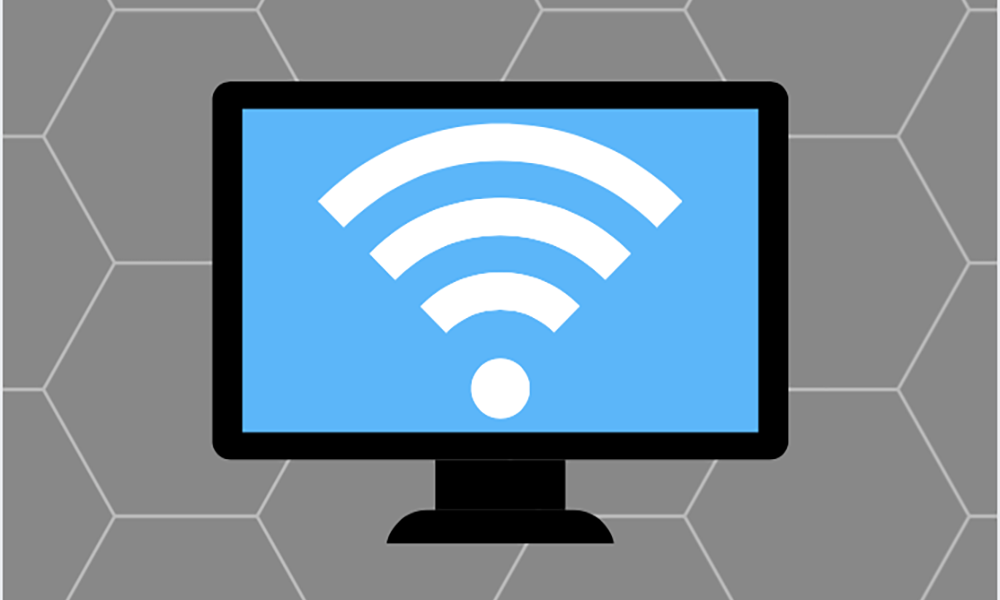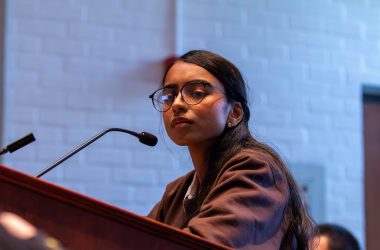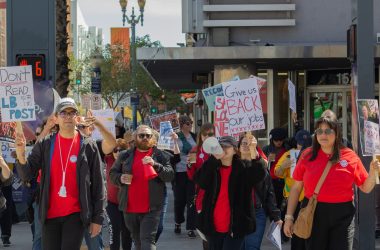Long Beach State has loaned over 1,500 laptops and nearly 3,000 hotspots to accommodate students in need of technological resources to participate in coronavirus-imposed virtual instruction this fall.
With classes being held primarily online for the fall 2020 semester, on-campus resources that students normally rely on for their schoolwork and homework, including the University Library and the Horn Center, are inaccessible.
Now that an outbreak of the coronavirus has led CSULB to close even more of its essential buildings and services for two weeks, the handful of students who would use campus WiFi and the University Student Union’s Open Lab are unable to take advantage of these resources at this time.
According to Min Yao, vice president and chief information officer, the Division of IT worked alongside the Division of Student Affairs to execute the device giveaway, which was a “phase-in and need-based selection process.”
“I think that it is a good just-in-time project to help our students make the transition from taking in-person classes to online classes,” Yao said. “It also helps fulfill President [Jane Close Conoley]’s vision to address the digital-divide issue among our students.”
Funded by the Coronavirus Aid, Relief and Economic Security Act, the program was free of charge to students and proposed based on Conoley’s goal to address the university’s issue of students lacking the proper technological resources to adequately perform in remote instruction.
According to Yao, CSULB allocated $2.5 million to directly “address technology needs on campus, including students’ needs for laptop computers and hotspots.”
Roxy Mendoza, third-year psychology major, said she first heard about the program through a campus-wide email and decided to apply for a laptop and hotspot after one of her professors discussed the resource in class.
Mendoza said she received both a Dell laptop and a Moxee hotspot and felt the entire process was easy. Although the hotspot is labeled as a two-gigabyte device, an employee who works for student affairs confirmed that the university pays for unlimited data.
“I’m super thankful for it, my regular laptop is dying so having a separate laptop that I can do my school work and Zoom meetings is a total life safer,” she said. “The laptop works pretty good other than being a little outdated.”
Mendoza said that she did, however, have some difficulty finding a hotspot that worked properly during the giveaway.
“I had to try six different hotspots until I got one that worked,” Mendoza said. “Hell, it got to the point where I closed my eyes and pointed to a random one to see if I would be lucky and get a working one. I do think the program should have something stronger than a two-gigabyte hotspot for students who are completely without WiFi.”
Minh Nguyen, a third-year finance major, said she also had issues with her hotspot.
“The laptop is fine but the WiFi was not good, sometimes I couldn’t use it at all,” she said.
Some professors have been forcing students to use lockdown browsers in an effort to prevent cheating, and Nguyen said this software is resulting in laptop damage.
“It made my MacBook [freeze], and I couldn’t control my mouse anymore,” she said.
The equipment loan program invited students to apply for laptops and hotspots in three phases, with the first phase prioritizing students “whose family income was zero,” the second focusing on “students with low family income” and the third informing “all students regardless of family income,” according to Yao.
“We will continue the technology equipment loan program for students until we exhaust our allocated funds,” he said.
Yao said that students can register online to receive a loaner laptop, hotspot or both and, when approved, visit campus to receive their reserved devices from Student Affairs.
Yao said that the university estimates it will be able to provide an additional 500 laptops and 1,000 hotspots to students.
“We always pay attention to the changing students’ needs for technology and adjust our services accordingly to provide efficient technology support for our students,” Yao said.




